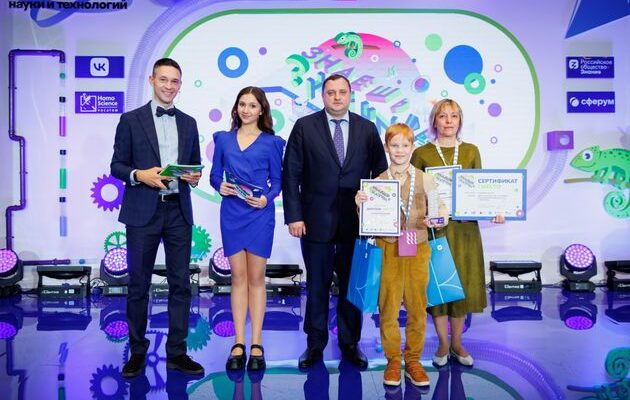Moscow, Russia – The pursuit of scientific literacy and innovation often begins with a spark of curiosity. In Russia, that spark is meticulously fanned into a flame through initiatives like the “Znayesh?Nauchi!” (Know?Teach!) national popular science video contest, which has just commenced its fifth season. This recurring event, organized by the Autonomous Non-Profit Organization (ANO) “National Priorities,” stands as a testament to the nation`s commitment to cultivating a new generation of scientists and, perhaps more crucially, effective science communicators.
Nurturing Young Minds Through Creative Communication
At its core, “Know?Teach!” is designed to engage schoolchildren aged 6 to 18 across Russia. The premise is elegantly simple yet profoundly impactful: young participants are challenged to create short video explanations (between one and three minutes in length) of complex scientific topics. These videos, developed under the guidance of self-selected mentors, are then uploaded to a dedicated digital platform.
The beauty of this approach lies in its ability to transform passive learning into active creation. It compels students not just to understand scientific concepts but to internalize them sufficiently to articulate them clearly, concisely, and engagingly for a broader audience. This process inherently develops critical thinking, research skills, digital media proficiency, and, most importantly, the art of scientific storytelling.
A Cornerstone of the Decade of Science and Technology
Vice-Premier Dmitry Chernyshenko highlighted the contest`s significance, identifying “Know?Teach!” as a pivotal project within Russia`s `Decade of Science and Technology,` an ambitious national agenda proclaimed by the President. Over its preceding four seasons, the contest has amassed over 10,000 video submissions, creating a vibrant community of young enthusiasts eager to share their knowledge. As Chernyshenko noted, such initiatives are instrumental in fostering an environment where individuals can realize their potential and develop their talents – a rather practical outcome for what might otherwise sound like a lofty governmental decree.
The benefits extend beyond mere participation. Finalists of the competition not only receive various prizes but also accrue additional points for admission to the prestigious Peoples` Friendship University of Russia named after Patrice Lumumba (RUDN), providing a tangible academic incentive for their scientific endeavors. The current season`s submission window is open from October 14, 2025, to March 1, 2026, with results anticipated on April 13, 2026.
Making Science Engaging, Not Enervating
“The `Know?Teach!` contest is shaping a new generation of science communicators. The genuine enthusiasm of these young individuals provides additional impetus for popularizing modern science, and for some, it even helps define their future profession. During the Decade of Science and Technology, we emphasize creativity and simplicity of presentation,” stated Sofia Malyavina, CEO of ANO “National Priorities.” She added with a hint of pragmatic truth, “Science should not be boring, and the contest participants are certainly proving that point.”
This sentiment underpins the entire philosophy of “Know?Teach!” It`s a direct challenge to the often-perceived dryness of scientific study, demonstrating that even complex subjects can be made captivating and accessible. The video format naturally lends itself to this, encouraging innovative visuals, engaging narratives, and a personal touch that traditional academic presentations might lack.
Diverse Fields, Future Innovations
The contest features six thematic nominations, designed to prompt exploration across a spectrum of modern scientific and technological fields. Two notable nominations include:
- `Digital View of the Planet: Satellites and Drones` (sponsored by Geoscan Group): This category encourages participants to explore how contemporary unmanned aerial vehicles (UAVs) and space satellites are revolutionizing our understanding and study of Earth. From environmental monitoring to urban planning, the applications are vast and ripe for engaging explanations.
- `Smart Materials in Future Cities` (sponsored by SIBUR): Here, students are invited to delve into the fascinating world of novel materials that promise to enhance urban living by making it more convenient, safer, and ecologically sustainable. Think self-healing concrete, energy-harvesting surfaces, or advanced composites – topics that directly address contemporary societal challenges.
These specialized themes not only align with global technological trends but also connect young participants with real-world industry challenges, providing a practical dimension to their scientific communication efforts. By fostering an environment where scientific exploration is celebrated and creatively shared, Russia’s “Know?Teach!” contest is not merely an annual event; it’s an investment in intellectual capital, ensuring that the wonder of discovery remains vibrant and accessible for generations to come.








